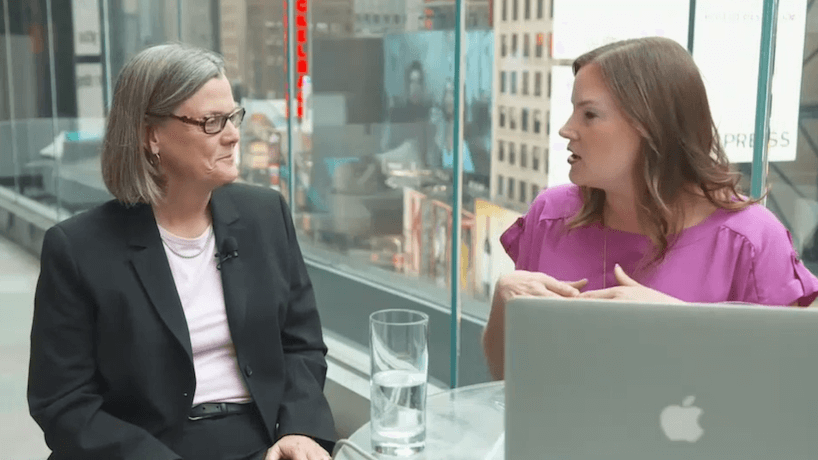When remote attendees tuned into PCMA’s Education Conference LIVE from June 12–13, the digital program of the annual summer event, many of them most likely recognized the broadcast location: the balcony of the Marriott Marquis that overlooks Times Square. The organization’s digital events team capitalized on the host venue to stream exclusive live interviews from the iconic spot in the Big Apple. “This is the same balcony that national networks use to broadcast their annual New Year’s Eve celebrations,” said Carolyn Clark, senior vice president of marketing at PCMA. “It was an ideal setting to infuse an extra dose of energy into the program.”
Doing More With Less
While the Education Conference experience operated on the same level as the most-recognized names in television, the organization’s nonprofit budget is a fraction of the celebrity broadcasts that reach millions of viewers. In fact, due to its smaller size, the budget looks different than the other digital events that PCMA hosts throughout the year. Jennifer Kingen Kush, executive director of Digital Experience Institute, said that the team was “challenged on how to translate the event into a meaningful and engaging experience with fewer resources than [we usually have] for our larger events.”
The numbers show that the efforts paid off. More than 800 attendees from 28 countries around the world tuned in for two full days of programming — expanded from the standard one-day broadcast in previous iterations of Education Conference. Fifty-three percent of attendees spent more than four hours viewing the broadcast, which featured sessions on trends and issues such as managing cyber-security concerns, incorporating augmented reality at events, and pitching disruptive ideas to C-level leadership. When they audience disconnected, they were pleased with the investment of time, too: 92 percent of attendees gave the experience an “excellent” or “above average” rating.
Addressing the Evolution of On-Site Interaction
Achieving those above-average satisfaction scores wasn’t as simple as turning on the camera and letting attendees earn education credits. As face-to-face programming shifts to focus on intimate discussions and hands-on learning opportunities, Kingen Kush acknowledged that repackaging the on-site experience for an online audience isn’t easy. “The on-site program featured mostly interactive workshop education sessions,” she said. “For an online group of several hundred, we really had to think through the experience of our remote participants. Our online moderators had to play the role of on-site facilitators to keep the conversation going.”
The challenges weren’t confined to the host venue, though. On Monday afternoon, face-to-face attendees left the hotel for off-site immersive educational sessions. Due to costs and production- support requirements, broadcasting from the locations around Manhattan was impossible. “We decided to give the online audience a taste of education with mini-educational interviews,” Kingen Kush said. “During two, special 15-minute interviews, our host had a conversation with presenters from two of our leading immersive sessions. It was a friendly conversational style segment that delivered the biggest session takeaways along with a taste of these immersive sessions.”
Looking Ahead Toward Long-Term Impact
While the immediate results showcase the program’s success, Clark said that the event might prove to be even more valuable in the future. More than half of the audience was comprised of individuals who are not PCMA members, and 70 percent indicated that they are more likely to attend the face-to-face version of the program in the future.
Want a glimpse of what impressed all those attendees? The rebroadcast of the experience is today. If you want the programming to fit in your schedule, it will also be available with the PCMA Premium Content Subscription.

